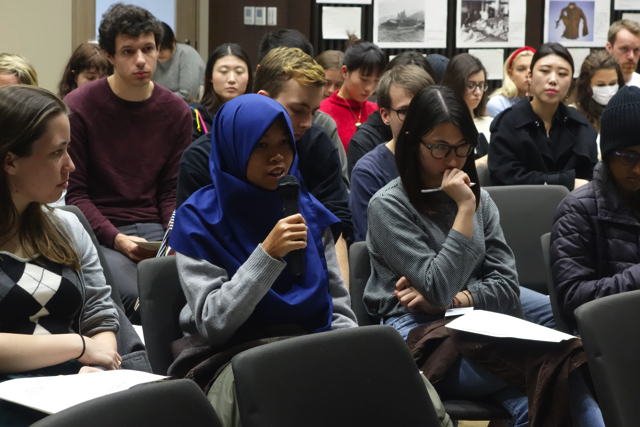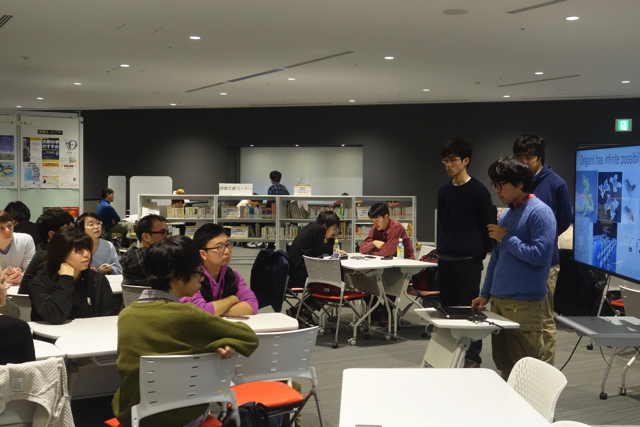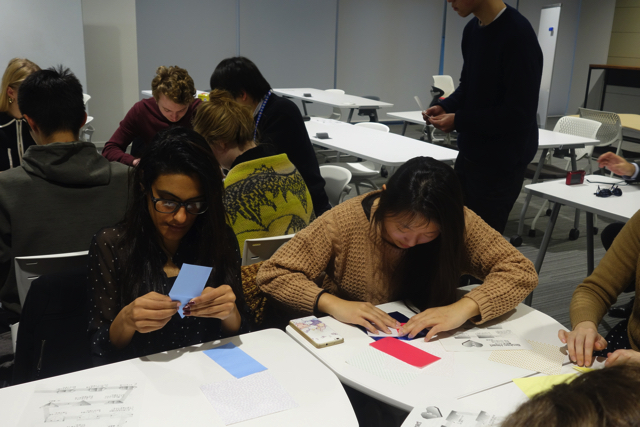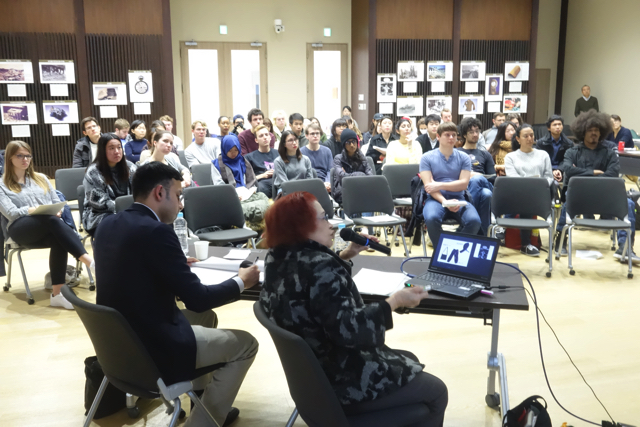1. Study Period Options
The JTW program provide two options for your study period as its participants:
- Option 1: Academic Year Period
Fall-Winter Semester (October – February) AND Spring-Summer Semester (April – July) - Option 2: One Semester Period
Fall-Winter Semester (October – February) OR Spring-Summer Semester (April – July)
Option 1 is the program’s recommendation. As a comprehensive package of academic and experiential study program, JTW is designed to help participants to achieve the core objective – understand Japanese culture and society in today’s world – over the course of one academic year.
Simultaneously, JTW happily welcomes you just for one semester (Option 2) should this study period suits your schedule and needs in relation to your home institution.
2. Academic Learning (For Credit)
2.1. Academic Policies & Requirements
GENERAL POLICIES
JTW M6C – ENROLLMENT REQUIREMENT
First, to comply with Japanese immigration law, all students participating in the JTW program are required to establish a full-enrollment status and to maintain it at all times during their participation in the program. The JTW program refers to this most fundamental academic requirement as the JTW M6C enrollment requirement, which means all JTW students enroll for credit in a minimum of six courses every semester (thus, “M6C”). These courses must be selected from a set of courses and projects that the program designates. You must maintain the JTW M6C enrollment requirement at all times throughout your participation in JTW.
AWARDING OF CREDIT
As a Kyushu University study program for international students, JTW awards you official credit upon your successful completion of the courses you enroll in and the projects you undertake. Typically, successful completion of a semester-long course is worth 2 credits. The credit-awarding process also involves acquiring formal approval from the Kyushu University International Student Center Oversight Committee, which reviews your academic record.
CREDIT TRANSFER
It is possible to transfer JTW-awarded credit to your home university. Please be aware, however, that credit transfer is subject to the approval of your home university. The JTW program can’t request or even negotiate with your home university for approval of the transfer in any way. It is therefore your responsibility to consult in a timely manner with the appropriate advisor(s) at your home university on this matter. You are strongly advised to do so before or during the JTW course registration period, so that you and your home university will have a mutual understanding in place regarding the applicability of JTW courses and credits to your degree program.
The JTW Program is open to both undergraduate- and graduate-level students at their home institutions. Nonetheless, its academic components, including the core courses (as will be discussed below), are designed primarily for undergraduate students. While graduate-level students may also enroll in the core courses and earn credits, the learning objectives and courses requirements of the core courses are designed primarily to meet the needs of undergraduate-level students.
PROGRAM COMPLETION REQUIREMENT
The JTW program awards you a certificate of program completion at the end of your program period – in early February for those participating only in the fall semester and at the end of July for all other students. You are qualified to receive this certificate if you have met:
- The JTW M6C enrollment requirement; and
- All minimum requirements for the courses and projects as determined by the relevant course instructors or project supervisors.

COURSE SELECTION & REGISTRATION POLICIES
COURSE SELECTION REQUIREMENTS
To satisfy the JTW M6C enrollment requirement, every semester, you are required to select courses (and projects, if you elect) from the following six categories of academic activities designated specifically for all JTW students:
| Course/Project Category | Course/Project Type | |
| 1) | JTW Core Courses | Standard content courses |
| 2) | Regular faculty courses | |
| 3) | Independent Study Project (ISP) | Question-driven individual research projects |
| 4) | Advanced Laboratory Research (ALR) | |
| 5) | Japanese Academic Courses (JACs) | Language courses |
Your course selection should begin with selecting at least one JTW core course to enroll in. Per semester, you are required to enroll in and complete at least TWO JTW core courses to meet the JTW M6C enrollment requirement.
The other (minimum of) 4 courses or projects may comprise, in variable combination, any of the remaining categories (including JTW core courses) in compliance with the maximum number of courses or projects from each category that the JTW program sets may be counted toward the JTW M6C enrollment requirement:
| Course/Project Category | Toward JTW M6C |
| JTW core course | 2 course required |
| PLUS | |
| Additional JTW core courses | Up to 4 courses |
| Regular faculty courses | Up to 2 courses |
| Japanese Academic Courses (JACs) | Up to 3 courses |
| Independent Study Project (ISP) | Up to 1 project |
| Advanced Laboratory Research (ALR) | Up to 1 project (counts as 2 courses) |
Note: You may enroll in more courses and/or projects for credit than the maximum that may count toward the JTW M6C enrollment requirement.
REGISTRATION REQUIREMENTS
You are required to complete filling the JTW Course Online Registration Form in online and submit it by the deadlines for timely and successful enrollment as indicated below:
JTW Course Online Registration Form is send to each JTW student via JTW portal website.
Submission Deadline for JTW Course Online Registration for JTW students
October 18 (Wed), 2023
Click below to see to learn the grading criteria and a summary of credit-awarding policies for each category of the courses and projects required by the JTW M6C enrollment requirement:
2.2. JTW Core Courses – Required
The JTW core courses are designed primarily for JTW students with these courses’ explicit aim being to introduce the culture, society, economy, and politics of Japan in today’s world – the core academic scope of the JTW program. Instruction is in English. All JTW students are required to enroll in at least TWO JTW core course per semester towards the JTW M6C enrollment requirement.
- Each course comprises 15 class sessions, meeting once a week during a 15-week period.
- Each course is worth 2 credits (upon successful completion).
- It is possible to earn 3 credits from a JTW core course only if permitted by both the instructor of the course and a JTW faculty coordinator. Please note that this arrangement is available only for JTW students enrolling in JTW core courses.
- You may enroll in an additional 4 JTW core courses per semester towards the JTW M6C enrollment requirement. In theory you may enroll in more than a total of 6 JTW core courses for credit, but up to a total of 6 JTW core courses are counted towards the JTW M6C enrollment requirement.
Click below to see the latest offerings of JTW Core Courses (with links to the syllabi):
JTW Core Course List & Timetable for Spring-Summer 2024
JTW Core Course List & Timetable for Fall-Winter 2023-24
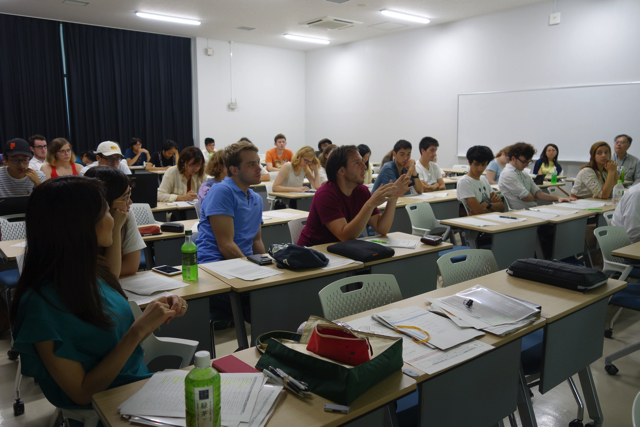
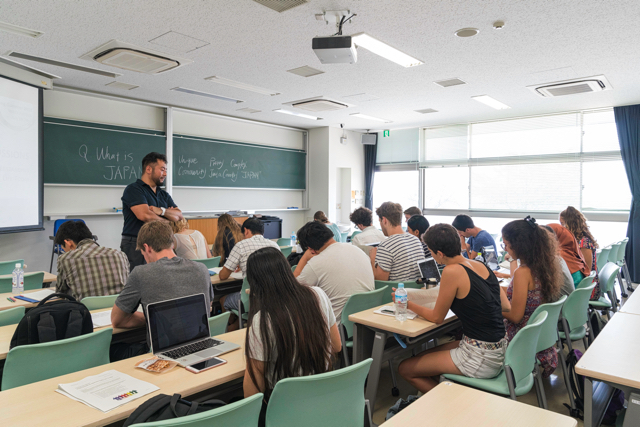
2.3. Japanese Language Courses (JACs) – Optional
“JACs” refers to a set of Japanese language courses designed to offer four types and up to eight levels of Japanese language lessons for those international students interested in learning the language for credit. JTW students may enroll in JACs course as an option for meeting the JTW M6C requirement. Each JACs course runs as a series of small-group, interactive, and practical sessions.
-
- JACs adopts a quarter system for its instruction; each course (e.g., K-3, Kanji course at Level 3) spreads across two quarters (a.k.a., “round”).
- Per quarter, each course comprises 15 class sessions, meeting twice a week during a seven-and-half-week period (7.5 weeks).
- Your class performance will be subject to formal grading every quarter. Nonetheless, your grades will be reported to you only at the end of Quarter 2 (Summer Quarter) and at the end of Quarter 4 (Winter Quarter) through the JACs webpage.
- Per semester, you are required to attend JACs courses for two consecutive quarters, totaling 15 weeks (e.g., Quarter 1 and Quarter 2) in order for a course to be counted as one of the six courses required by the JTW M6C enrollment requirement.
- If you are at the I-2 level or higher, you may enroll for credit in up to 3 courses per quarter, and at the I-5 level or higher up to four courses per quarter.
- Regardless of course level (from Beginner through Pre-Advanced), up to 3 JACs courses may be counted toward the JTW M6C enrollment requirement.
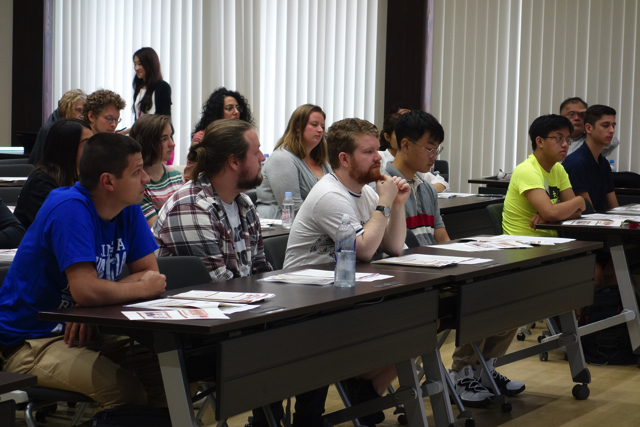
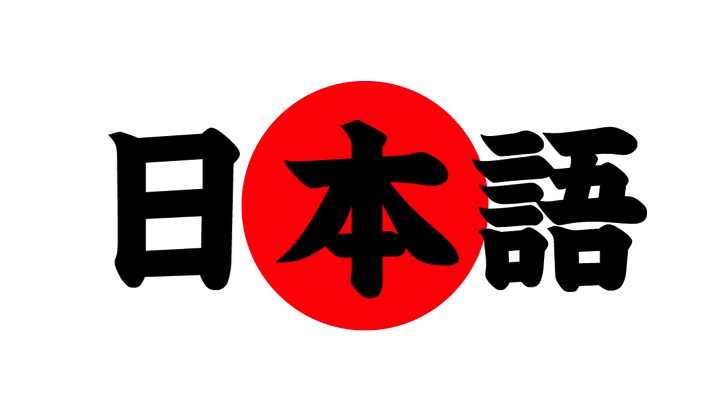
2.4. Independent Study Project (ISP) – Optional
An Independent Study Project (ISP) is an optional research project for JTW students; it is a semester-long, topic-driven research project that you may choose to carry out within the field of or closely related to Japanese studies of your interest.
If you choose to work on your ISP:
- The JTW faculty coordinators will help arrange on your behalf a faculty member, in or outside the JTW program, appropriate to serve as your ISP supervisor.
- You are required to design and carry out your research project under faculty guidance. You will meet with your supervisor two or more times per month throughout the semester, according to a mutually decided schedule. Initial meetings involve discussing and settling jointly on the student’s research topic and approach.
- To complete your ISP, you must meet the requirements arranged in advance with your project supervisor.
- You are required to share your research results with the Kyushu University community by making an end-of-semester oral presentation and turning in a written report.
- Your oral presentation and written paper are subject to formal grading, and together you may earn 2 credits upon successfully completing your ISP.
- Per semester, only one ISP may be counted towards the JTW M6C enrollment requirement.
- Only if you are one-year JTW student (participating in the program for two consecutive semesters – from fall through spring), it is possible to extend your ISP to two semesters in certain cases with approval of your ISP supervisor and a JTW faculty coordinator.
- ISPs for two semester length are awarded four credits in total, but only at the end of the second semester, for ISP works successfully completed. No partial credit is granted for unfinished projects.
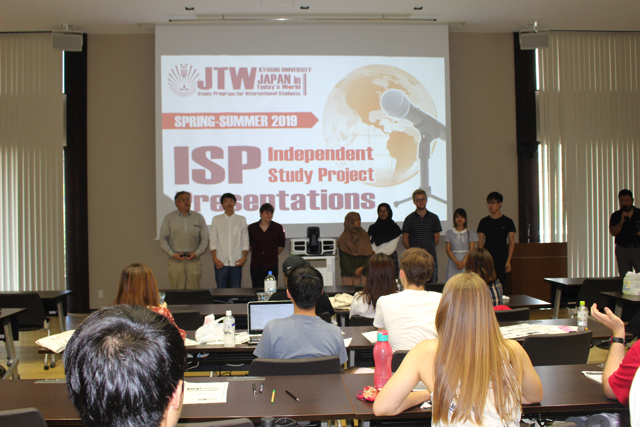
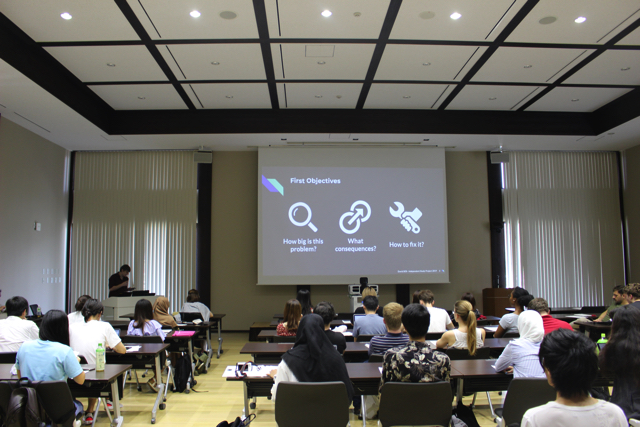
2.5. Advanced Laboratory Research (ALR) – Optional
An ALR project is an optional opportunity for you to design and carry out a research project of your interest typically via participating in an ongoing broad research project in a laboratory setting in the faculties of science and engineering.
- ALR projects are conducted in English, and this opportunity is available if you are: 1) majoring in science or engineering; and 2) in at least your third year of study in your home university.
- You are required to carry out your ALR project in a laboratory setting under the guidance of an appropriate specialist as your ALR supervisor in any of the faculties of Engineering, Sciences, Agriculture, or Pharmacy.
- The JTW faculty coordinators will help arrange on your behalf a faculty member, outside the JTW program, appropriate to serve as your ALR supervisor.
- Learning objectives and achievement criteria as well as research duties and expectations vary significantly by ALR supervisors; these are determined by negotiation between you and your ALR supervisor, and in consultation with a JTW faculty coordinator. To complete your ALR project, you must meet the requirements arranged in advance with your ALR supervisors.
- If you choose to undertake an ALR project, it is counted as 2 courses towards the JTW M6C enrollment requirement (due to a greater time commitment that you will likely be required to make to regularly and frequently participate in the lab).
- While counted as 2 courses, undertaking an ALR project is still worth only 2 credits.
- It is possible, depending on your research topic, for you to register your ALR project also as an ISP project; together this combination is counted as 3 courses towards the JTW M6C enrollment requirement and is worth 4 credits.
- Per semester, only one ALR may be counted towards the JTW M6C enrollment requirement.


2.6. Regular Faculty Courses – Optional
“Regular faculty courses” refer to those offered outside the JTW program by standard faculties (schools/departments) – such as Law, Economics, Design, Science, Engineering, etc. – and primarily for their degree-seeking students. While still limited, the number of faculty courses taught in English have in recent year been increasing. While participating in the JTW program, you may enroll in these courses for credit as an option.
- Many English-taught faculty courses last for a semester (equal to two quarters). In this case, same as the JTW course courses, each course comprises 15 class sessions, meeting once a week during a 15-week period, and is worth 2 credits (upon successful completion).
- Up to 2 (semester-long) regular faculty courses may be counted towards the JTW M6C enrollment requirement.
- Some faculty courses last for a quarter (one-half of a semester). If enrolling in only one quarter-long faculty course, you may aim to earn a credit, but this is not counted as one of the six courses required by the JTW M6C enrollment requirement. It is counted as such only if enrolling semester-long (two quarter-long) faculty courses.
- Graduate-level courses are not available to JTW students; an exception may be made only if you are graduate students at your home university.
- Enrollment in a regular faculty course is subject to the approval of both the course instructor and one of the JTW faculty coordinators.
- You are required to obtain clearance from the JTW faculty coordinators, at the start of the semester, to audit or take for credit any regular faculty courses, using the form named “Faculty Course Registration Approval for JTW Students.”
Click below to see what Regular Faculty Courses are available:
Where To Look For Regular Faculty Courses
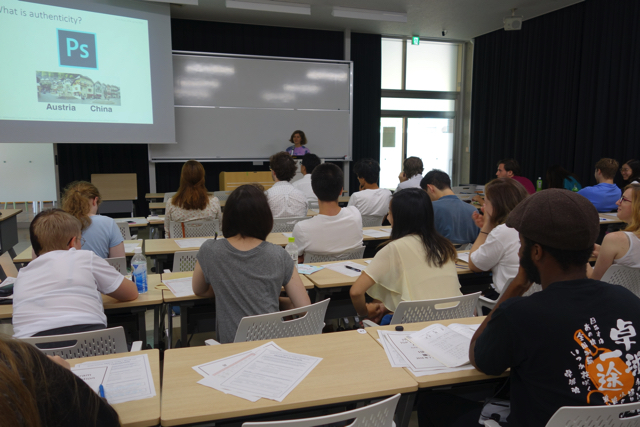
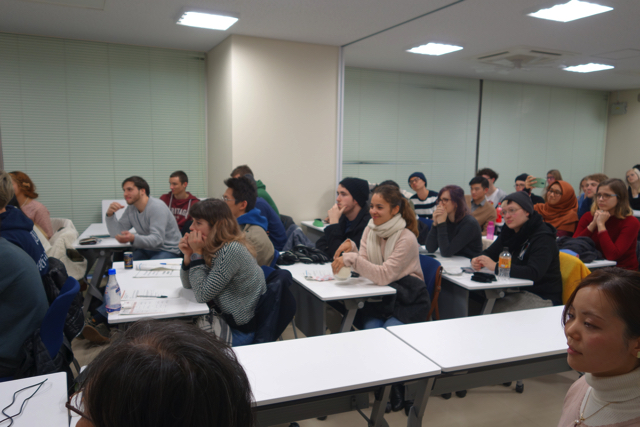
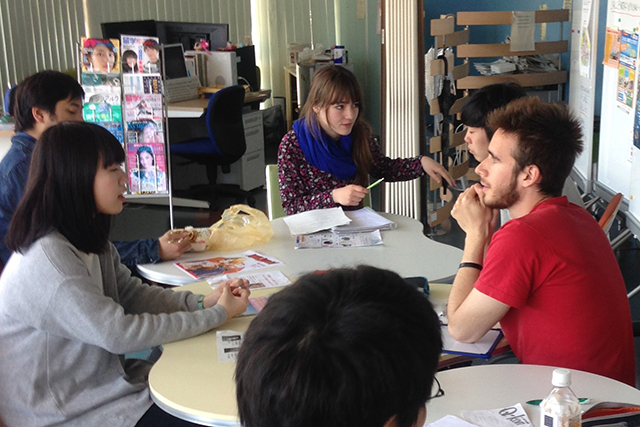
3. Experiential Learning (For Cultural Immersion)
3.1. JTW Field Study Trips
As studies on international education have long suggested, field study trips are clearly one of the most direct, effective and enjoyable means to facilitate experiential learning of a culture of your interest. To help deepen your understanding of Japanese culture and society of the past and present, the JTW program conducts on your behalf a series of field study trips. While specific destinations and contents of learning activities are subject to change every semester, typically, JTW field study trips begin with a welcome/orientation trip at the beginning of your study period and include 12-13 trips over the course of a program year (October – July), roughly at a once-a-month pace.
Most study trips will take you somewhere in the northern part of Kyushu Island, including Nagasaki. Some trips involve physical activities such as experiencing rice reaping and planting, seated meditation at a nationally renowned Buddhist temple, and interacting with local elementary school students in their classrooms. Some study trips last two days, staying overnight at the destination sites.
The JTW program covers most of the costs for these activities, while participants are required to cover a small part of the expenses. Your participation is mandatory for some of the study trips for reasons essential to addressing the educational missions of the JTW program. Some trips are optional. You are strongly encouraged to participate in all the trips arranged during your study period to get the most out of what the JTW program offers as Kyushu University’s premier study program for international students!
Click below to learn the destinations, activities, and learning objectives of all study trips conducted this/past program year:
JTW Study Trips: An Overview
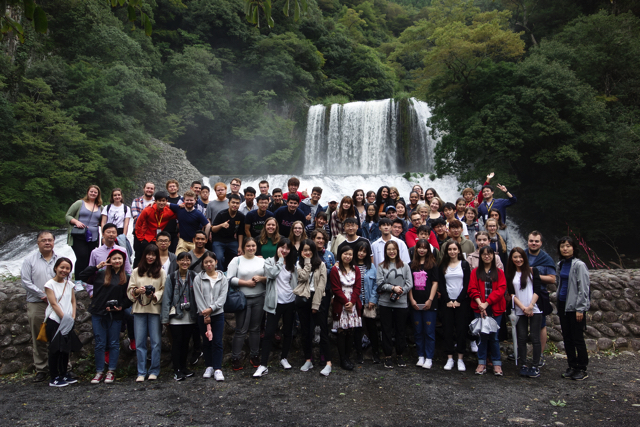
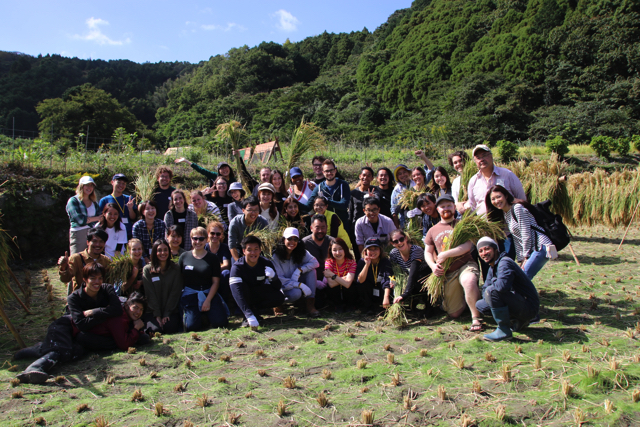
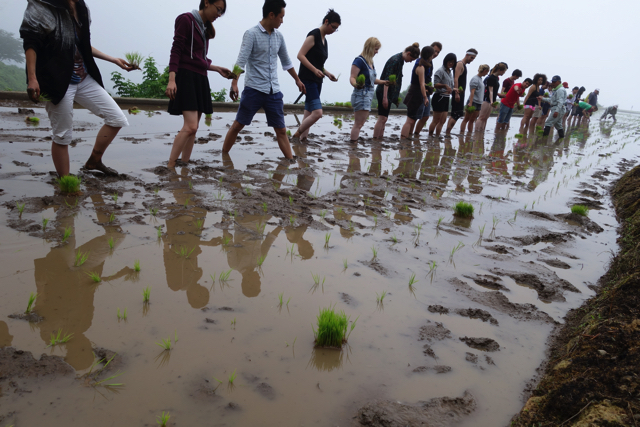

3.2. Student Tutor Program
Once your program participation becomes official, the JTW program starts arranging a student-to-student partnership between you and your supporter, who JTW calls a JTW student tutor. Your tutor is typically a Japanese student based in Ito campus of Kyushu University. The student tutor is prepared for providing you, throughout you study period, with one-on-one assistance.
The student tutors will befriend, look after you, and study with you in a variety of ways. They are readily available to come pick you up from the airport and help you to settle in the campus. If you are interested, your tutor may explore with you Fukuoka City and its surrounds when time permits. They may also accompany you on JTW-arranged activities, including field study trips, take the same classes together, arrange informal, tutor-initiated parties and trips, introduce you to the university club of your choice, and otherwise offer their support the ways that work for the two of you.
Many of the student tutors are interested in, or seriously planning on, studying abroad next year themselves, and so are highly motivated to work with you as part of their preparation for international learning. You may interact with your student tutor in English, Japanese or a combination of both, depending on the mutual needs, interests or comfort.
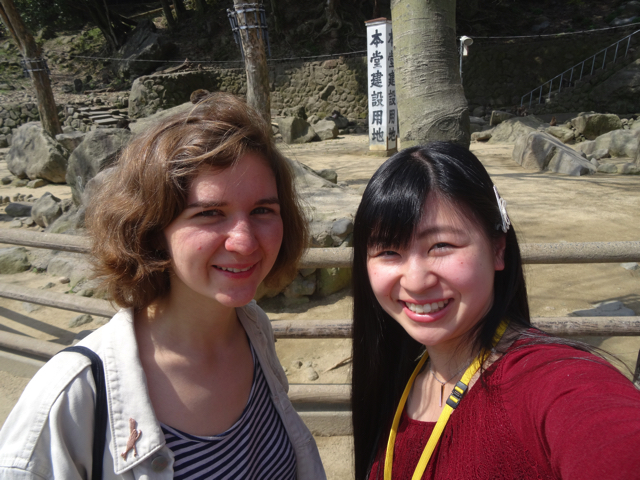
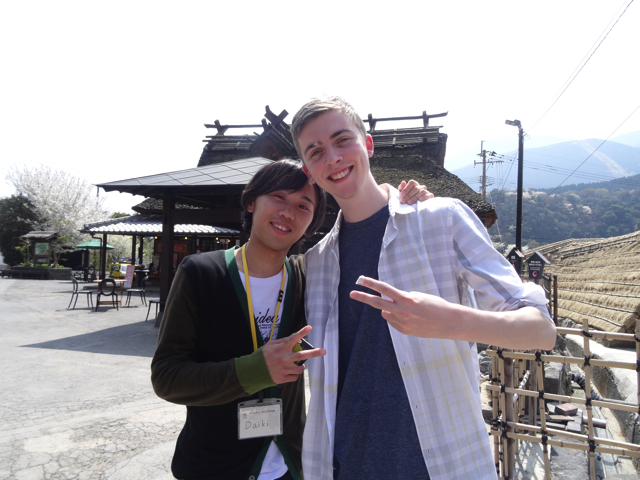
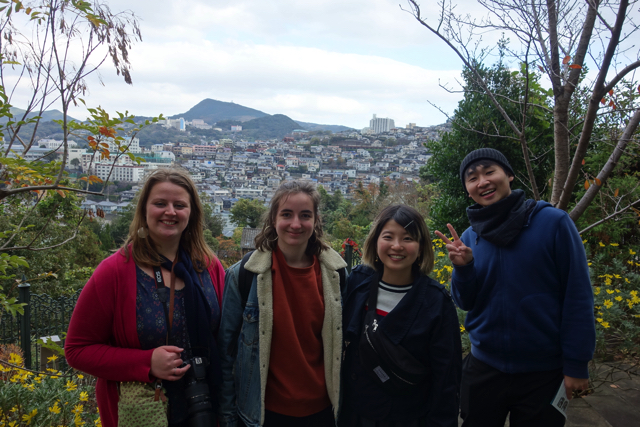
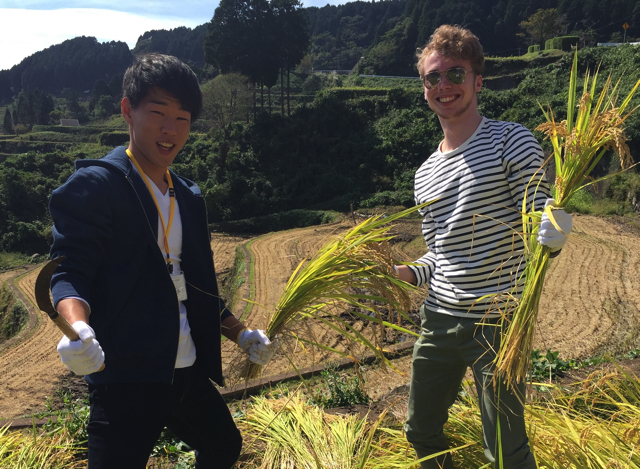
3.3. Japanese Conversation Partner Program
Once your program participation becomes official, the JTW program starts arranging a student-to-student partnership between you and your supporter, whom JTW calls a ‘JTW student tutor.’ Your tutor is typically a Japanese student based at the Ito campus of Kyushu University. The student tutor is prepared to provide you with one-on-one assistance throughout your participation in the program.
The student tutors will befriend you, look after you, and study with you in a variety of ways. They are readily available to pick you up from the airport and help you to settle in to life on campus. If you are interested, your tutor may explore Fukuoka City and its surroundings with you when time permits. They may also accompany you on JTW-arranged activities, including field study trips; take the same classes together; arrange informal, tutor-initiated parties and trips; introduce you to the university club of your choice; and otherwise offer their support in ways that work for the two of you.
Many of the student tutors are interested in, or seriously planning on, studying abroad next year themselves, and so are highly motivated to work with you. You may interact with your student tutor in English, Japanese or a combination of both, depending on your mutual needs, interests or comfort.
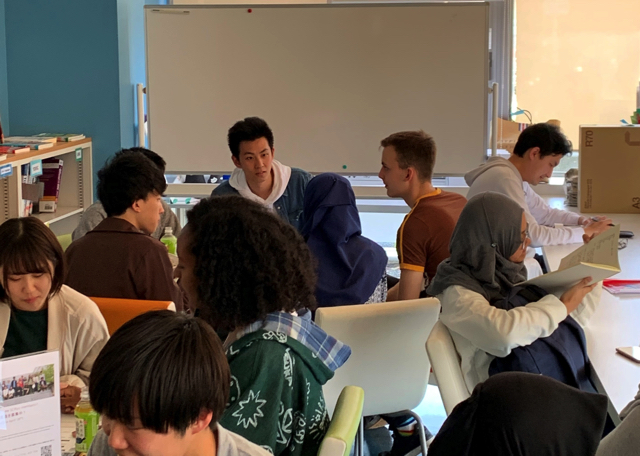
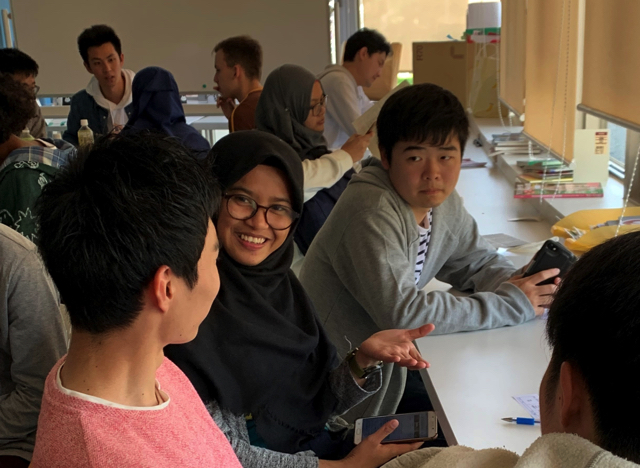
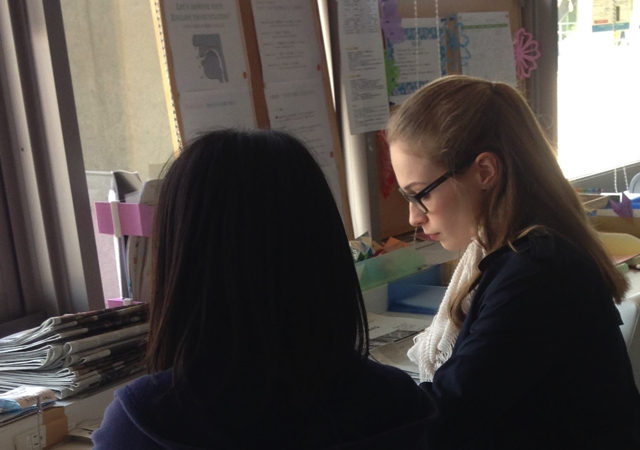
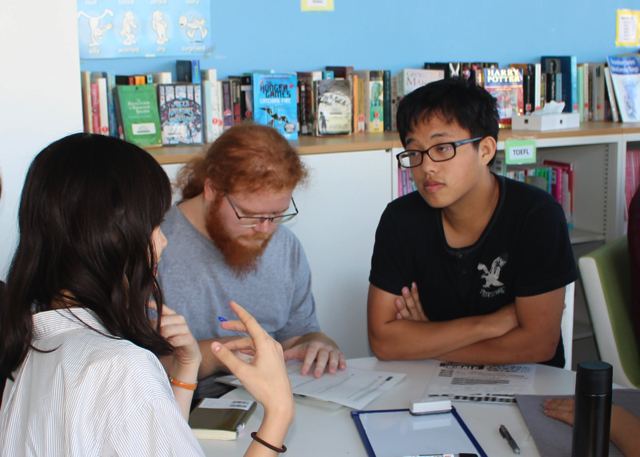
3.4. Home Visit Program
The JTW program also arranges, if you’re interested, to introduce you to a Japanese family living in the Fukuoka City area, typically with school-age children, who will host you on periodic weekend visits to their home throughout the year/semester. If both parties’ schedule allows, they may take you out to enjoy popular local sites and events for your cultural learning.
Are you interested in experiencing standard Japanese family life first hand? If so, this special arrangement can be an excellent opportunity for your immersion experience away from the regular classroom and even from the campus at large. Some JTW students, in fact, end up staying with more than one host family and developing warm friendships that last well beyond the end of their study period.
All the instructions for the arrangement of the home visit program are delivered, together with a form for you to fill in, during the on-campus orientation event upon your arrival.


3.5. On-Campus Exchange Activities
Every semester the JTW program arranges and conducts – by itself and/or in collaboration with other units on campus – activities or events aiming to facilitate your experiential learning of Japanese culture and society and to enable your cross-cultural exchange with local students.
Recent instances of such activities/events include the annual Origami (art of paper-folding) workshop with the Central Library; Nagasaki Atomic Bombing Survivor Symposium, a semester-long language table session with Japanese students, and so on.
Furthermore, JTW students are encouraged to take the lead for planning such activities, rather than just participating in program-arranged ones. If interested, you may propose, plan, and conduct activities based on your interest in consultation with the JTW program. JTW will seek to support your on-campus exchange activities.
